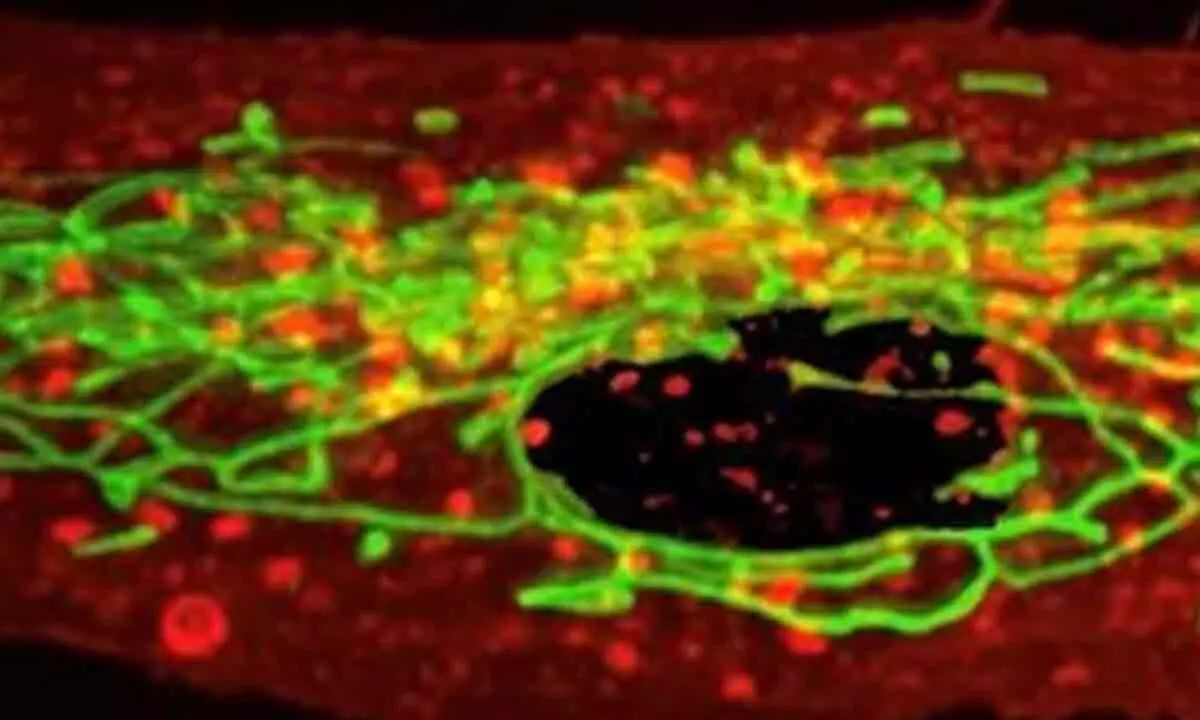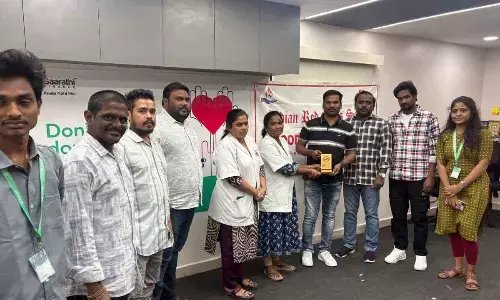Study finds blood biomarkers linked to suicidal thoughts
Share :

A simple blood test may soon be on the anvil to detect people with depression and those vulnerable to suicidal ideation, according to a study that identified blood biomarkers linked to suicidal thoughts.
New York : A simple blood test may soon be on the anvil to detect people with depression and those vulnerable to suicidal ideation, according to a study that identified blood biomarkers linked to suicidal thoughts.
While many people with depression experience improvement with psychotherapy and medication, some people’s depression is treatment-refractory, meaning treatment has little to no impact.
Suicidal thoughts are experienced by the majority of patients with treatment-refractory depression, and as many as 30 per cent will attempt suicide at least once in their lifetime.
Researchers at University of California San Diego School of Medicine revealed a connection between cellular metabolism and depression. They found that people with depression and suicidal ideation had detectable compounds in their blood that could help identify individuals at higher risk of becoming suicidal.
The researchers also found sex-based differences in how depression impacts cell metabolism. The findings, published in the journal Translational Psychiatry, could help personalise mental health care and potentially identify new targets for future drugs.
“Mental illnesses like depression have impacts and drivers well beyond the brain,” said Robert Naviaux, Professor in the Department of Medicine, Pediatrics and Pathology at UC San Diego School of Medicine.
“Prior to about ten years ago it was difficult to study how the chemistry of the whole body influences our behaviour and state of mind, but modern technologies like metabolomics are helping us listen in on cells’ conversations in their native tongue, which is biochemistry,” Naviaux said.
The researchers analysed the blood of 99 study participants with treatment-refractory depression and suicidal ideation, as well as an equal number of healthy controls.
Among the hundreds of different biochemicals circulating in the blood of these individuals, they found that five could be used as a biomarker to classify patients with treatment-refractory depression and suicidal ideation. However, which five could be used differed between men and women.
“If we have 100 people who either don’t have depression or who have depression and suicidal ideation, we would be able to correctly identify 85-90 of those at greatest risk based on five metabolites in males and another 5 metabolites in females,” said Naviaux.
“This could be important in terms of diagnostics, but it also opens up a broader conversation in the field about what’s actually leading to these metabolic changes.”
While there were clear differences in blood metabolism between males and females, some metabolic markers of suicidal ideation were consistent across both sexes. This included biomarkers for mitochondrial dysfunction, which occurs when the energy-producing structures of our cells malfunction.
Because some of the metabolic deficiencies identified in the study were in compounds that are available as supplements, such as folate and carnitine, the researchers are interested in exploring the possibility of individualising depression treatment with these compounds to help fill in the gaps in metabolism that are needed for recovery. Naviaux hastens to add that these supplements are not cures.
















